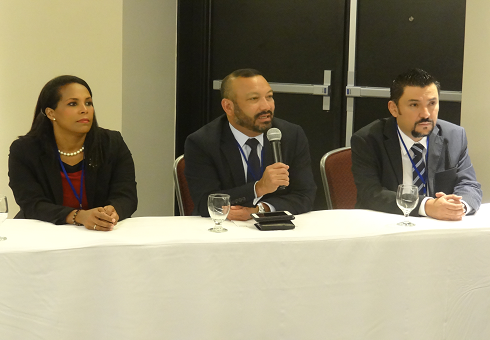Under the “Strengthening bilateral trade between the US and Latin America” Project implemented in countries with a FTA with the US, the workshop “Elements of strategy to boost trade chain cassava between the Dominican Republic and the United States” was implemented in the Dominican Republic.
Under the “Strengthening bilateral trade between the US and Latin America” Project implemented in countries with a FTA with the US, the workshop “Elements of strategy to boost trade chain cassava between the Dominican Republic and the United States” was implemented in the Dominican Republic.
This project, funded by the United States Department of Agriculture and Foreign Agricultural Service (USDA-FAS) seeks to improve the access conditions of different countries in Latin America and the Caribbean (LAC) that have established trade agreements with the United States in recent years.
The overall objective of this project is to strengthen the capacities of the value chain actors in the public and private sector involved in trade with the United States to identify and address some non-tariff barriers in bilateral trade that arise in the administration and implementation of the trade agreement, institutional articulation and access to markets.
In this regard, the project has been focusing in the identification of these barriers of the different actors in the cassava value chain and also, have been discussed, analyzed and validated at this workshop; which he had the participation of producer associations, public and private institutions supporting the production, research and trade.












